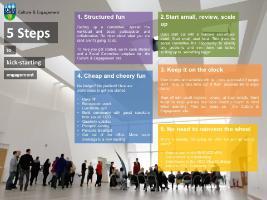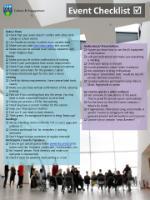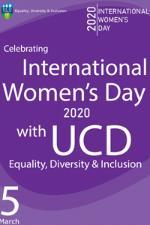Throughout the 2016 and 2018 Surveys, employees have raised reward and recognition as a key area of concern. Feedback consistently shows employees worry that their efforts go unnoticed. Day-to-day recognition has a key role to play in building engagement and can be done without the need for a big budget or complex processes. Leave aside pay and budgets and start by focusing on what you control.
Provide frequent feedback & recognition
- Thank colleagues for a good job!
- Don't wait for an annual award ceremony. Instead provide regular, informal feedback.
- Ensure feedback is specific and fact-based.
- Note improvements in specific development areas.
- Connect recognition to the UCD Values of creativity, collegiality, diversity, integrity, engagement, excellence, diversity.
- Connect to a larger goal. Show the employees' impact locally and connect to (opens in a new window)organizational goals and strategy.
- Agree goals and a development plan through Performance for Growth (P4G)
Use all available channels
- Don't over-complicate recognition, use everything at your disposal to recognize contribution (email, phone call, written notes).
- Connect employee contributions to unit or organizational goals by recognizing specific individuals in annual reports or quarterly emails.
- Call out contributions on the School / Unit website.
- Bring the team together for tea / coffee to celebrate milestones or project completion dates.
- Reward success with One4All vouchers (available on eProcurement).



